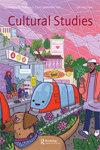使黑人大西洋变酷:阿克瓦克·埃梅齐写作和视觉艺术中的跨性别空间
IF 1.6
3区 社会学
Q1 ANTHROPOLOGY
引用次数: 1
摘要
在过去的二十年里,非洲酷儿在文学和艺术中出现了大量的表现,这些表现被认为是对文化政治的干预和不同意见的表达。本着这种思路,我认为有必要把酷儿和散居在一起考虑,以便重新思考吉尔罗伊的黑人大西洋。自《黑色大西洋》(1993)出版以来,吉尔罗伊的另一个重要追求是重新确定非洲的地位及其广泛的文化生产,这在吉尔罗伊西方化的现代性讨论中被很大程度上忽视了。因此,本文将探讨非洲酷儿研究在非洲文学和电影中的发展,并将重点放在尼日利亚出生的跨性别作家和视觉艺术家Akwaeke Emezi身上。他们的实验视频和照片使用伊博传统作为他们自己在散居的非二元性别非洲自我表达的一部分。在他们的文章“过渡”(2018a)中,Emezi通过非洲的视角挑战了西方的性别观念,并从非殖民化的角度重新获得了他们的土著信仰。在定义跨性别者的含义时,埃梅齐假设他们可能是奥格班杰(ogbanje),这是一些非洲前殖民文化中发现的一种精神孩子,不符合西方的性别观念。同样,在广受好评的处女作《淡水》(2018b)中,艺术家部分取材于自己的生活,讲述了被奥班杰困扰的年轻伊博和泰米尔妇女艾达的故事,通过栖息在主人公体内的灵魂的复调声音,诗意地描述了性别转变。埃梅兹将个人经历与艺术相结合,使黑人大西洋中的多重非洲人、散居者和性别身份可见。本文章由计算机程序翻译,如有差异,请以英文原文为准。
Queering the black Atlantic: transgender spaces in Akwaeke Emezi’s writing and visual art
ABSTRACT The last two decades have witnessed an emergence of African queer representations in literature and the arts that have been framed as interventions in cultural politics and as expressions of dissent. In this vein, I contend that it is necessary to consider queerness and diaspora together in order to rethink Gilroy's black Atlantic. Another important pursuit since the publication of The black Atlantic (1993) has been reclaiming the place of Africa and its broad cultural production, which was largely overlooked in Gilroy's Westernized discussion of modernity. This article thus explores the growth of African queer studies in African literature and film, and goes on to focus on Nigerian-born transgender writer and visual artist, Akwaeke Emezi. Their experimental videos and photographs use Igbo traditions as part of their own expression of a gender non-binary African self in the diaspora. In their essay, ‘Transition' (2018a), Emezi challenges Western notions of gender through an African lens and reclaims their indigenous beliefs from a decolonial perspective. In defining what it means to be transgender, Emezi posits the notion that they might be an ogbanje, a spirit child found in some African pre-colonial cultures that does not conform to Western ideas of gender. Likewise, in the critically acclaimed debut novel Freshwater (2018b), the artist draws in part from their own life to tell the story of Ada, a young Igbo and Tamil woman haunted by the ogbanje, offering a poetic account of gender transition through the polyphonic voices of spirits that inhabit the protagonist. Emezi’s combination of personal experience and art makes visible multiple African, diasporic, and gender identities in the black Atlantic.
求助全文
通过发布文献求助,成功后即可免费获取论文全文。
去求助
来源期刊

Cultural Studies
Multiple-
CiteScore
3.50
自引率
6.70%
发文量
0
期刊介绍:
Cultural Studies is an international journal which explores the relation between cultural practices, everyday life, material, economic, political, geographical and historical contexts. It fosters more open analytic, critical and political conversations by encouraging people to push the dialogue into fresh, uncharted territory. It also aims to intervene in the processes by which the existing techniques, institutions and structures of power are reproduced, resisted and transformed. Cultural Studies understands the term "culture" inclusively rather than exclusively, and publishes essays which encourage significant intellectual and political experimentation, intervention and dialogue.
 求助内容:
求助内容: 应助结果提醒方式:
应助结果提醒方式:


